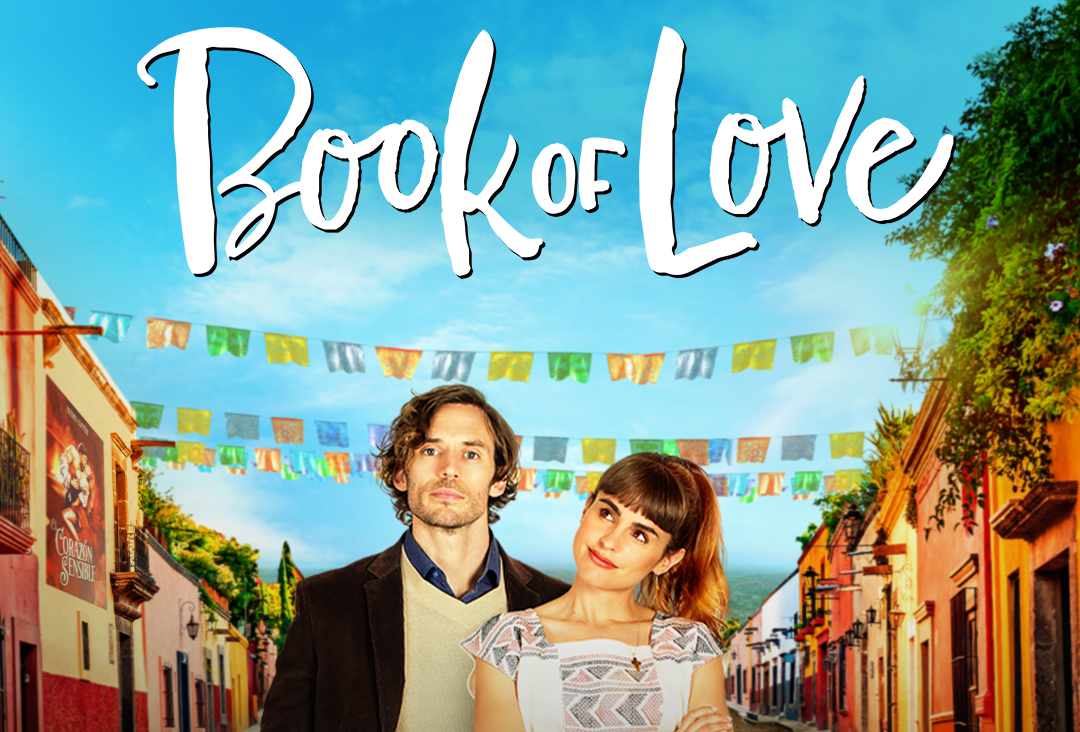Maybe it’s just me, but I will watch every movie — especially romantic comedies — set in Mexico. Am I biased because I happen to be Mexican? Yeah, absolutely. Seeing my country’s striking sceneries as the backdrop for a budding romance? It helps me forget all about my stress and anxiety for a couple of hours, making it the perfect self-care for me. This is exactly why I was so excited when I first heard about Book of Love, directed by Mexican filmmaker Analeine Cal y Mayor.
Sadly, after watching the trailer back, my heart sank a bit – what I had expected to be a cute love story between a foreign writer and his Mexican translator turned out to be yet another instance of Latina women being portrayed in a negative, derisive way. Despite my initial hesitance, I decided to give the film. I was hopeful that my initial issues were just the product of poor editing and not of Hollywood perpetuating stereotypes about Latinas again.
The premise of the film is very predictable — as are so many rom-coms, honestly. The main characters meet and they immediately hate each other. They’re stuck together and somewhere along the way, sparks fly! We’ve seen this formula a thousand times, but that’s why we love these movies so much, right? The thing is the details that make up the formula this time end up painting women like me, Mexican (and Latina) women, in a negative light.
You see, Book of Love revolves around Henry, a writer portrayed by San Claflin (who yes, happens to be my teenage crush), whose book (you guessed it, about love!) is failing because of how incredibly dull it is. To everyone’s surprise, though, the book has become an overnight success in Mexico, which leads to an impromptu book tour with him and María, his Mexican translator (Verónica Echegui, who by the way, is not even Mexican. She’s Spanish!). However, he quickly realizes the real reason why his book is such a hit with Mexican women: instead of translating the book as it was written, María decided to “adapt” it to something that would be better received by the Mexican audience, turning it into a full-on sexy romance novel, rather than the original, more heavy and serious version.
Here’s my issue: the filmmakers and writers build their whole film around the assumption that Mexican women would only accept a book if it was made into a sexually explicit romance novel! So all of Book of Love turns out to be just one more instance of Hollywood portraying Mexican women — and Latinas in general — as “spicy,” sex-crazed, and shallow.
While the main character of Book of Love might not be the typical spicy Latina, the whole movie relies on this trope throughout the plot as comedic relief, making Mexican women seem like lustful creatures who can’t possibly think of anything other than sex and can’t possibly show interest in a book, if it’s not written by a conventionally attractive güero they can yell innuendos and piropos at. Mexican actress Lupe Vélez popularized the “spicy Latina” stereotype eighty-plus years ago, but it’s sadly still alive in 2022.
I love seeing a movie about my country and my people, especially one that revolves around a book being successful (Mexicans read more than five books a year, making us the second most avid readers in Latin America, next to Chileans). I love seeing my country and its beauty showcased. And I love seeing stories about Latinas taking matters into their own hands and making their dreams come true.
What I don’t love, though, is seeing women like me getting stuck in the same box we’ve been stuck in for decades. Sure, Latina women can be attractive, and, yes, some of us might even be open about the fact that we enjoy sex, but there’s more to us than that! There’s more to us than being sex-crazed (and, yes if I’m being honest, I expected more from a film directed by a Mexican woman).
Book of Love is supposed to be a light, funny movie. It’s easy to watch and it’ll probably not win any awards but representation matters. The noxious way Hollywood continues to portray Latinas matters and it impacts our daily lives — beyond theater and TV screens, shaping how others see and interact with us (and sometimes even how we see ourselves).
Actual Latinas carry on intellectual conversations, speak several languages, have successful careers, build families, and yes, gasp, enjoy books that aren’t just sexual! There’s so much more to us than what movies pretend. And if a rom-com set in Mexico and directed by a Mexicana can’t get it right, well, then, I have to ask, what can?

